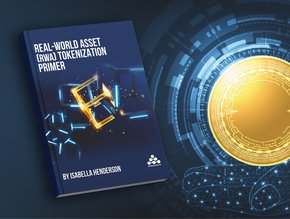Building a resilient, digitally-focused workforce in banking

At the very beginning of 2020, no-one could have predicted the ways in which the COVID-19 pandemic has initiated a global shift in societal, economic and business norms. As old operational paradigms are discarded or reimagined in order to adjust to the ‘new normal’, the banking sector has been presented with an opportunity to accelerate any nascent plans to reshape its workforce structure to a truly modern standard. Although the initial impact of the virus left no time for banks to brace for the immediate effects, current market conditions suggest that those who embrace the latitude and spirit of innovation now required to bring the situation under control will benefit greatly; those who do not are likely to reap failure.
Employee wellbeing
In its article ‘Shaping and safeguarding the banking workforce after COVID-19’, McKinsey highlights that one of the primary changes to organisational structures will have to be an ever-closer relationship between Human Resources (HR) departments and Board Executives. Since the unpredictability of the virus makes rigid decision-making ineffective at best and potentially hazardous at worst, banks will need to ensure a harmonious collaboration between the two for the foreseeable future. “HR should be a strategic partner in the ‘nerve centre’ crisis-response team (which nearly all financial institutions established weeks ago) and also any ‘plan-ahead team’ working to get ahead of the crisis,” said the report. Accordingly, bank HR departments will be able to enact on-a-dime decisions on everything from entire buildings to individual workers.
This ultimately comes down to establishing a system which ensures a higher degree of employee wellbeing. Whatever initiatives promoting mental and physical health existed previously will need to be accelerated and intensified to ensure staff are coping under the pressure. In fact, McKinsey’s report suggests that this might even be taken one step further, with some “banks [...] considering extending support beyond individual employees to the full ecosystem, including employees’ families and contractors in the workforce.” This kind of decision-making, in combination with greater transparency and taking a balanced perspective on remote vs office working, will ease anxiety amongst staff, promote a positive and caring image for the bank itself and contribute to the overall effort of restarting the economy.
Ways of working
More than simply restructuring how banks monitor and look after their staff, the fundamental day-to-day operations of a financial institution will need to adjust to a new way of working. Deloitte opines in its article ‘Shaping the adaptive financial services organisation of the future’ that digital transformation strategies, many of which will have accelerated because of COVID-19’s restrictions of physical workforces, will come to define the modern financial spaces’ ways of working. Old roles will either be augmented or replaced by new ones which require a more innovative cultural mindset and entrepreneurial spirit from each member. “They will focus on higher-value-added work, augmented with intelligent technologies, often with a heavy emphasis on skills and competencies such as data science and the customer experience,” says Deloitte. Indeed, the financial sector may be seeing an end to siloed job functions and making a bold move towards cross-team fluidity; project-based organisational models will require workers to be multi-taskers for a number of goals relating to different skillsets. Banks at the forefront of this workplace revolution will need to consider how to practically reskill existing staff and reevaluate hiring policies for future ones.
Of the financial services companies it surveyed, Deloitte found the following statistic with regard to workforce restructuring:
- 35% have a strong positive opinion that an adaptive, multi-talented workforce will ensure an organisation’s success.
- 84% of HR and business leaders believe that facilitating performance across the workforce, including contractors, employees and third-parties, overall company performance can be improved.
- 60% of senior executives intend to make job opportunities more flexible, enable greater autonomy and facilitate greater collaboration between teams.
McKinsey concurs with this prioritisation on flexibility; the most successful bank managers, it claims, will be those who maintain enough agility to react to changes in the financial or regulatory situation with bold decisiveness. How workers actually conduct their daily business (i.e. from home or in the office) will be important: both have their benefits and drawbacks, yet proper utilisation of both simultaneously will be crucial to maintaining business continuity. For instance, “many are leveraging work-from-home options, both onshore and globally, for less sensitive work. Some are also introducing a variety of workforce options, from staggered shifts to a different mix of full and part-time positions to work schedules set up according to daily demand.”
Another factor in the reskilling process will also be determining how customer expectations, requirements or priorities have altered since the pandemic. McKinsey suggests that microskilling, upskilling, reskilling, reinforced accountability and a particular emphasis on high-quality interactions will be important to consider. Regarding the latter, the usage of video conferencing software and developing visual dashboards to help communicate a single source of truth could help achieve this aim.
Management and culture shifts
In line with a restructured workforce, management may find that it too needs to adjust in order to fit the new normal. One of the first things that will require careful reevaluation, posits McKinseys, will be workplace targets, particularly the time-scales for their accomplishment. Whilst monthly targets were once reasonable, they may no longer reflect the mercurial conditions and soon become obsolete due to revised objectives. A better approach could be smaller short-term goals which factor in the required level of corporate agility. In any eventuality, bank managers will need to establish clear communications across the organisation, seek broader consensus prior to implementing new strategies and find appropriate ways to maintain company morale through well-placed incentives. “Leaders must play a central role in determining how successful their organisations are at adjusting to the immediate fallout of the COVID-19 crisis. The uncertainty and long-term nature of the COVID-19 crisis will likely trigger further unanticipated workforce transformations that will reshape aspects of the future of workforces with permanent effects,” McKinsey states.
A more fundamental cultural shift might be the further integration of human and machine capabilities, for instance artificial intelligence (AI). Although sometimes intimidating because of preconceived notions of ‘replacing’ workers, intelligent automation combined with human creativity, innovation and empathy can yield significant levels of efficiency for financial service providers; Deloitte cites evidence that “AI has the potential to boost labour productivity by up to 40% by 2035”. With the same survey also claiming that 76% of financial institutions are planning to introduce smart automation in some form within the next three years, this appears to be a trend which is gaining near-total acceptance in the sector. In fact, Deloitte’s survey found that 68% of workers already believe that AI’s widespread adoption will yield positive results. Therefore, it is all the more crucial to establish what mundane tasks can be automated in order to allow the timely reskilling of workers in more qualitative roles. “HR [...] should look at how it can harness talent strategy, reskilling, leadership development and process redesign to help the organisation drive optimal results from investment in AI,” Deloitte says. “A siloed approach to automation will impact the workforce strategy and fragment the organisation and culture.”
Deloitte’s ‘human ingenuity + technology = innovation’ checklist:
- Pay attention to tech developments and use what’s available to anticipate the future.
- Ensure that the active workplace strategy is properly aligned with the organisation’s overall vision.
- Take the opportunity to realign corporate culture with new workforce strategies.
- Explore new paradigms for the existing workforce structure.
- Grant employees the latitude and responsibility to explore moving outside the boundaries of their role.
- Treat reskilling and workforce development as a resource.
- Establish clear risk and governance boundaries to reinforce responsibility and regulatory adherence.
- Refinitiv webinar: Reimagining banking post-COVID-19Sustainability
- EU intends to provide every citizen with a digital walletDigital Payments
- COVID, cashless, and convenience: The rise of biometricsDigital Payments
- Providing quality CX in finance during uncertain timesFinancial Services (FinServ)






